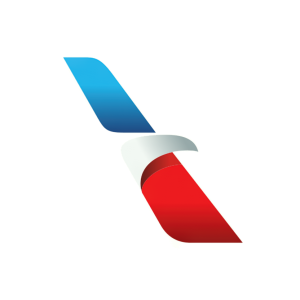In Conversation With American Airlines’ CEO
Rhea-AI Summary
American Airlines CEO Robert Isom discusses key sustainability challenges and achievements in 2023. He emphasizes safety as the top priority, highlighting the company's Safety Management System and strong safety culture. Isom notes operational improvements, including the best full-year completion factor since 2013 and record customer satisfaction scores.
The CEO identifies decarbonization as the biggest sustainability challenge, with a goal of net zero greenhouse gas emissions by 2050. He stresses the need for broader industry and government collaboration to achieve this target. Isom highlights efforts in sustainable aviation fuel (SAF) usage, aiming for 10% SAF use by 2030, but notes current limitations in availability and scale.
Isom expresses pride in American's 140,000+ team members and emphasizes the company's commitment to diversity and talent development, including initiatives like the American Airlines Cadet Academy for aspiring pilots.
Positive
- Best full-year completion factor recorded, with lowest number of cancellations since 2013
- Company-record customer satisfaction scores achieved in 2023
- Used 2.7 million gallons of sustainable aviation fuel (SAF) in 2023, the most in a single year
- Undertaking extensive fleet renewal to have the youngest mainline fleet among U.S. network carriers
- Investing in talent development and expanding recruitment efforts to increase diversity in aviation careers
Negative
- Challenges in achieving net zero greenhouse gas emissions goal by 2050
- SAF usage in 2023 was less than 1%, far below the 10% goal for 2030
- availability and high costs of SAF hinder scaling up its use
- Insufficient pace and scale of action across public and private sectors to decarbonize aviation
- Potential risk of not meeting 2030, 2035, and 2050 climate goals due to industry-wide challenges
News Market Reaction 1 Alert
On the day this news was published, AAL declined 1.96%, reflecting a mild negative market reaction.
Data tracked by StockTitan Argus on the day of publication.
NORTHAMPTON, MA / ACCESSWIRE / July 23, 2024 / American Airlines
Chief Executive Officer Robert Isom shares his perspectives on the sustainability highlights and challenges for American in 2023
Originally published in American Airlines' 2023 Sustainability Report
Safety is an issue that's been front and center in the airline industry recently. How is American responding?
Safety is always at the forefront of everything we do at American, and it's part of my job every day. When American first developed it, our Safety Management System literally set the standard for our industry, and it continues to guide how we rigorously and consistently integrate safety across our operations. We know safety is about systems and execution, but all of that really starts with a strong safety culture. Our top safety leaders come to the role with deep experience working on the front line, with the professional certifications those roles require. They understand what good safety practices look like on the ground. And we make clear to every team member that safety is everyone's responsibility, that it's their duty to report any safety concerns - and they will never face any repercussions for doing so. Aviation is by far the safest mode of transportation in the world, and we are dedicated to keeping it that way.
How do you think about operational performance in the context of sustainability?
First, it's important to remember that American is just one part of a broader supply chain that delivers travel - the airframe and engine manufacturers, fuel suppliers and government agencies that control the airspace are all critical parts - and making our industry more efficient and sustainable needs to be a joint effort. For example, improving how we use the airspace will help us operate more efficiently, save time for our passengers and reduce our emissions. That's why we advocate on behalf of our industry for more investment in the Federal Aviation Administration.
Within our own operations, American's ability to deliver on our sustainability goals depends on us continuing to run a reliable operation and thriving as a profitable enterprise. We remain laser focused on being the most reliable airline possible - one that delivers for our customers day in and day out. In 2023, we recorded our best full-year completion factor, with the lowest number of cancellations annually since 2013. Thanks to that, along with a host of other efforts we have underway to enhance the travel experience, we also posted company-record customer satisfaction scores for the year.
Our job is to get every one of our passengers safely to their destination - on schedule and with their baggage in tow, to the very best of our ability. But, equally, it's to get every one of our team members home safely at the end of their workday. As we've ramped up operations and onboarded new team members - fully a quarter of the team is new to American since the pandemic - we've redoubled our focus on workplace safety, including by launching a new companywide safety awareness training program and strengthening our training for new hires. Protecting the safety of our people is our foremost priority. Among all the competing demands of running an airline, safety always wins for us.
"Aviation is widely recognized as one of the most difficult sectors to decarbonize. Getting there is going to require action and investment across the public and private sectors and, quite frankly, that's not happening at the pace or scale we need."
What do you see as American's biggest sustainability challenge?
Our ability to achieve net zero greenhouse gas (GHG) emissions.
There's no question we need to decarbonize aviation, and American's goal to achieve net zero GHG emissions by 2050 is the right one. We are taking concrete steps within our operations and pulling all the levers we can control to drive progress. This includes undertaking the most extensive fleet renewal effort in the history of our industry to give us the youngest mainline fleet among U.S. network carriers. We're also working and investing to help advance the technologies designed to deliver viable and scalable decarbonization solutions over time.
But the reality is the action we can take within our own operations - or the scale of investment we can absorb in our low-margin business - will never be sufficient on its own. Government has a crucial role to play in facilitating the transition through smart policies, incentives and investments in R&D. Industry, in partnership with academia, needs to turn its focus to developing new commercial-scale decarbonization technologies. And innovation and policy need to work hand-in-hand. Aviation is widely recognized as one of the most difficult sectors to decarbonize. Getting there is going to require action and investment across the public and private sectors and, quite frankly, that's not happening at the pace or scale we need.
Can you give an example?
Sustainable aviation fuel (SAF) is a perfect example. American has a goal to use
Compared to other, not-yet-fully proven technologies to reduce the climate impacts of aviation, SAF is a no-brainer. It's a drop-in fuel, meaning it can be used by the aircraft flying today without modifications, that provides significant life cycle emission reductions. Scaling the SAF market so fuel is available at the volume and price needed to make a real dent in aviation's climate impacts - and to help American reach our climate goals - depends on bolder action by policymakers, increased investment by energy companies and more innovative financing approaches. We've seen progress - the recently enacted SAF blenders tax credit and similar efforts in states like Illinois are key steps forward - but we need more.
The development of new, more fuel-efficient engines and airframes is another example. Game-changing technologies like hydrogen - which American is also helping advance - are expected to be important elements of the long-term solution for decarbonizing aviation. But to get from here to there, we need manufacturers to invest in the incremental but meaningful advances in airframe and engine technologies that can come online with the next generation of aircraft.
It's a risk for me to come out and say that American's ability to achieve our 2030, 2035 and 2050 climate goals is in jeopardy. But in my mind, the bigger risk is failing to sound the alarm that there's an urgent need for more and faster action across the public and private sectors. American is doing its part, but we can't do it on our own.
Let's end on a positive note. What are you most proud of from the last year?
That's easy. Our more than 140,000 team members. It's their hard work and dedication that will help us reach our goals - be that financial, operational or on climate. Thanks to them, I'm confident that we can.
Across every level of our organization, we seek out the broadest and most diverse pool of talent available because we know that opening the doors to opportunity benefits our business, allowing us to recruit the best and our team members to do their best work. We're investing in developing the talent we need while raising awareness of and expanding access to careers in aviation. This includes expanding our recruitment efforts and broadening our talent pool by creating opportunities for groups that have historically faced barriers to entering our industry to pursue the stable and rewarding careers it provides. Through the American Airlines Cadet Academy, for example, we're reducing financial obstacles for those seeking to become pilots while developing a pipeline for an in-demand role. And we're partnering with the Aviation Institute of Maintenance and other schools to provide direct career paths and mentorship for aspiring maintenance professionals.
We also continue to invest in developing and recruiting great leaders across American. I am deeply proud and honored to have such a diverse and talented group of individuals with unmatched expertise in leadership roles throughout the company. I've said it before and I'll say it again: Our people are, and always will be, our greatest strength.
Robert Isom | Chief Executive Officer

View additional multimedia and more ESG storytelling from American Airlines on 3blmedia.com.
Contact Info:
Spokesperson: American Airlines
Website: https://www.3blmedia.com/profiles/american-airlines
Email: info@3blmedia.com
SOURCE: American Airlines
View the original press release on accesswire.com








